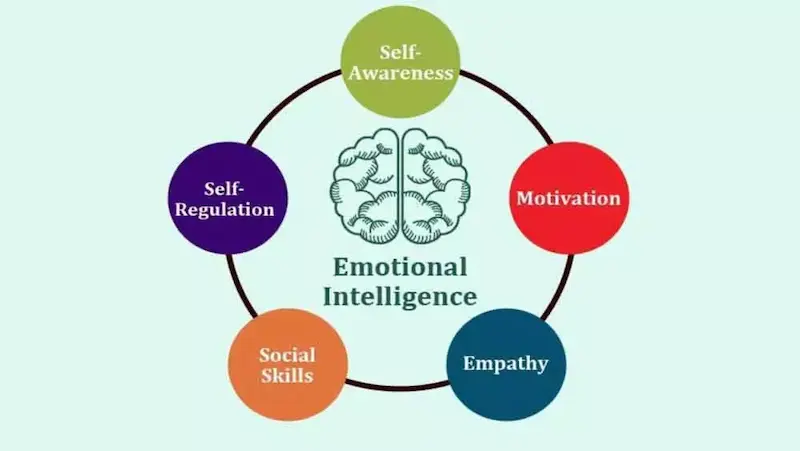Welcome to our blog, where we embark on a journey to explore the remarkable impact of positive thinking in raising resilient kids. In a world filled with challenges and uncertainties, it becomes increasingly important to equip our children with the tools they need to thrive and overcome obstacles. Positive thinking is a powerful tool that can shape their mindset, enhance their emotional well-being, and build their resilience.
As parents, guardians, educators, and caregivers, we play a crucial role in nurturing the young minds around us. By fostering a positive outlook, we can empower our children to approach life with optimism, confidence, and adaptability. Through this blog, we aim to delve deeper into the concept of positive thinking and understand how it can be harnessed to raise resilient kids.
Raising resilient kids means preparing them to navigate the ups and downs of life with grace and strength. It involves instilling in them the belief that they have the ability to overcome challenges, learn from setbacks, and persevere in the face of adversity. By cultivating positive thinking habits, we can help our children develop a resilient mindset that will serve them well throughout their lives.
Throughout this blog, we will explore various aspects of positive thinking and its impact on child development. We will discuss practical strategies, techniques, and activities that can be implemented in daily life to promote positive thinking. Additionally, we will examine the scientific research behind positive thinking and its effects on children’s mental and emotional well-being.
Join us on this enlightening journey as we explore the transformative potential of positive thinking in shaping the lives of our children. Together, let’s empower the next generation to embrace challenges, cultivate resilience, and thrive in an ever-changing world.
Table of contents
- The Importance of Positive Thinking in Child Development
- Nurturing Positive Self-Talk
- Cultivating an Optimistic Outlook
- Teaching Problem-Solving Skills
- Developing Emotional Intelligence
- Encouraging Gratitude and Mindfulness
- Building Resilience Through Positive Thinking
- Parenting Strategies for Fostering Positive Thinking
- Promoting Positive Thinking in Daily Life
- Conclusion
- Frequently Asked Questions
The Importance of Positive Thinking in Child Development
Childhood is a crucial phase for the development of a person’s mental health, emotional well-being, and overall resilience. Positive thinking plays a significant role in shaping these aspects of a child’s life. When children learn to cultivate positive thoughts and attitudes, it can have a profound impact on their mental and emotional growth. This article explores the importance of positive thinking in child development, highlighting its impact on children’s mental health, emotional well-being, and overall resilience.

Enhancing Mental Health:
Positive thinking promotes a healthy mindset in children, fostering optimism, self-belief, and confidence. It helps children develop a positive self-image and increases their resilience to face challenges. By encouraging positive thoughts, parents and caregivers can help children develop effective coping strategies, reducing the risk of anxiety and depression.
Optimistic thinking patterns contribute to improved mental health by reducing stress levels, enhancing problem-solving skills, and increasing overall happiness.
Fostering Emotional Well-being:
Positive thinking enables children to manage their emotions effectively and maintain emotional well-being. By teaching children to focus on the positive aspects of their lives, parents and educators can help them develop gratitude, empathy, and a sense of appreciation. Kids’ health is vital as it lays the foundation for their growth, development, and lifelong well-being
These qualities foster emotional intelligence, enabling children to understand and regulate their emotions, build healthy relationships, and handle conflicts in a constructive manner. Positive thinking also helps children develop a positive outlook on life, which contributes to their overall happiness and contentment.
Building Resilience:
Resilience is a crucial skill that allows children to bounce back from setbacks, adapt to change, and face life’s challenges with confidence. Positive thinking plays a vital role in building resilience in children. By nurturing a positive mindset, parents and caregivers empower children to view failures as learning opportunities and setbacks as temporary obstacles.
This optimistic perspective helps children develop problem-solving skills, perseverance, and a growth mindset. Positive thinking equips children with the resilience needed to navigate through life’s ups and downs, promoting their personal and academic success.
Developing a Growth Mindset:
Positive thinking encourages a growth mindset, emphasizing that abilities and intelligence can be developed through effort and dedication. When children adopt a growth mindset, they believe that they can improve their skills and intelligence with practice and hard work.
This mindset fosters a love for learning, resilience in the face of challenges, and a willingness to take on new experiences. By cultivating a growth mindset through positive thinking, children develop a lifelong passion for learning and the motivation to achieve their goals.
Nurturing Positive Self-Talk

Positive self-talk is an essential tool for building resilience, self-confidence, and a healthy mindset in children. It refers to the internal dialogue and thoughts that shape how children perceive themselves, interpret experiences, and handle challenges.
By fostering positive self-talk, parents, teachers, and caregivers can empower children to develop a strong sense of self, overcome obstacles, and embrace their unique potential. In this blog, we will explore practical tips and strategies to encourage positive self-talk in children, laying the foundation for their emotional well-being and future success.
Be a Positive Role Model:
Children observe and imitate the behavior of the adults around them. By practicing positive self-talk yourself, you provide an excellent model for your child to emulate. Avoid negative self-talk or self-deprecating comments, and instead, focus on expressing self-belief, resilience, and optimism. When children witness positive self-talk in action, it becomes a natural part of their own internal dialogue.
Encourage Positive Affirmations:
Introduce your child to positive affirmations, which are short, uplifting statements that reinforce positive qualities or intentions. Help them create personalized affirmations that reflect their unique strengths and aspirations. Encourage them to repeat these affirmations daily, such as in the morning or before bedtime, to reinforce positive self-perception and build self-confidence.
Praise Effort and Growth:
When offering praise to your child, focus on their efforts and the process rather than solely on the outcome. Emphasize their hard work, determination, problem-solving abilities, and resilience. This approach helps children develop a growth mindset, where they understand that their abilities can be improved through effort and practice. It also fosters a positive internal dialogue centered around growth and learning.
Foster a Supportive Environment:
Create a safe and supportive environment where your child feels comfortable expressing their thoughts and emotions. Encourage open communication and active listening. Offer empathetic responses and validate their feelings, helping them develop self-compassion and self-acceptance. By creating a nurturing atmosphere, children are more likely to develop positive self-talk and seek support when needed.
Teach Optimism and Gratitude:
Encourage your child to focus on the positive aspects of their experiences. Teach them to reframe challenges as opportunities for growth and learning. Foster gratitude by encouraging them to reflect on things they appreciate or are thankful for each day. Optimism and gratitude cultivate a positive mindset and help children develop a more optimistic and constructive internal dialogue.
Challenge Negative Thoughts:
Teach your child to recognize and challenge negative thoughts that may arise. Help them understand that negative thoughts are not facts but interpretations that can be reframed. Encourage them to question negative self-talk by asking, “Is this thought helpful or true?” and guide them in finding alternative, positive perspectives. This skill equips children with the ability to overcome self-doubt and develop a more positive self-image.
Emphasize Mistakes as Learning Opportunities:
Normalize mistakes as valuable learning experiences rather than failures. Encourage your child to see mistakes as stepping stones toward improvement and growth. Help them reframe mistakes by asking questions like, “What did you learn from this?” or “How can you approach it differently next time?” Emphasizing a growth mindset around mistakes fosters self-compassion and encourages positive self-talk during challenging situations.
Cultivating an Optimistic Outlook

In a world that can sometimes be filled with challenges and uncertainties, having an optimistic outlook on life can make a significant difference. Optimism empowers individuals to approach obstacles with a positive mindset, bounce back from setbacks, and embrace opportunities for growth.
As parents, it is crucial to foster this mindset in our children, enabling them to develop resilience and navigate life’s ups and downs with confidence. In this blog post, we will explore how parents can help their children cultivate an optimistic outlook and the remarkable benefits it brings.
Modeling Optimism:
Children learn by observing and imitating their parents’ behaviors. Therefore, it is vital for parents to model optimism in their everyday lives. By displaying a positive attitude, maintaining resilience, and reframing challenges as opportunities, parents can instill these qualities in their children. When faced with difficulties, express optimism by discussing potential solutions and highlighting the lessons learned from each experience.
Encouraging a Growth Mindset:
A growth mindset is an essential aspect of optimism. Teach your children that their abilities and intelligence can be developed through dedication, effort, and learning from mistakes. Encourage them to view challenges as opportunities for growth rather than as failures. Emphasize the importance of perseverance, praising their efforts and progress along the way.
Promoting Positive Self-Talk:
Help children develop a habit of positive self-talk. Encourage them to replace negative thoughts and self-doubt with positive affirmations. Teach them to reframe negative situations by focusing on the lessons learned or the potential for improvement. By cultivating positive self-talk, children can develop a resilient and optimistic mindset.
Practicing Gratitude:
Gratitude is a powerful tool that can shift focus from negativity to positivity. Encourage your children to express gratitude daily by identifying things they are thankful for. This practice helps them develop a positive perspective and appreciate the good things in their lives. Encourage them to keep a gratitude journal, where they can record and reflect upon their blessings regularly.
Encouraging Solution-Oriented Thinking:
Teach your children to approach problems with a solution-oriented mindset. Help them break down challenges into manageable steps and brainstorm possible solutions. Encourage creativity and open-mindedness when exploring different options. By empowering children to focus on solutions rather than dwelling on problems, they can develop a sense of agency and optimism.
Benefits of Optimism and Resilience:
Enhanced Mental Well-being:
Optimistic individuals often experience lower levels of stress, anxiety, and depression. By cultivating an optimistic outlook, children can develop a positive mental state, enabling them to cope better with adversity and bounce back from setbacks.
Improved Relationships:
Optimistic individuals tend to have better social connections and more fulfilling relationships. By adopting an optimistic mindset, children can develop stronger interpersonal skills, empathy, and a positive attitude towards others.
Increased Motivation and Achievement:
Optimism fuels motivation and fosters a belief in one’s abilities. Children with an optimistic outlook are more likely to set and pursue goals, persist in the face of challenges, and achieve academic and personal success.
Enhanced Resilience:
Optimism and resilience go hand in hand. Optimistic children are more likely to view setbacks as temporary and specific, rather than as permanent or personal failures. This mindset enables them to bounce back more quickly, learn from their experiences, and develop resilience to overcome future obstacles.
Teaching Problem-Solving Skills

The Power of Positive Thinking
Positive thinking is a mental attitude that focuses on the bright side of life, emphasizing optimism, resilience, and the belief that challenges can be overcome. By nurturing positive thinking in children, we lay the foundation for their problem-solving abilities to flourish. Here are some ways in which positive thinking enhances problem-solving skills:
Encourages Creativity: Positive thinking fosters an open and flexible mindset, allowing children to explore multiple perspectives and think outside the box. When faced with a problem, they are more likely to generate innovative ideas and consider unconventional solutions. If your child is intrigued by the world of robots, you won’t want to miss out on these captivating mindfulness games then check out
Builds Resilience: Problems and setbacks are an inevitable part of life. Teaching children to maintain a positive outlook helps them develop resilience, enabling them to bounce back from failures and setbacks. This resilience empowers them to approach problem-solving with determination and perseverance.
Promotes Self-Confidence: Positive thinking instills a sense of self-belief in children, making them more confident in their problem-solving abilities. When they approach challenges with a positive mindset, they develop the confidence to take risks, learn from mistakes, and persist in finding solutions.
Strategies for Incorporating Positive Thinking in Problem-Solving
Model Positive Thinking: Children learn by observing the behavior of those around them. As parents and educators, we can model positive thinking by maintaining an optimistic attitude, highlighting the lessons learned from failures, and expressing gratitude for even the smallest achievements. By consistently demonstrating positive thinking, we provide children with a powerful example to follow.
Encourage a Growth Mindset: A growth mindset, the belief that abilities can be developed through dedication and effort, is closely linked to positive thinking. Encourage children to view challenges as opportunities for growth rather than insurmountable obstacles. Emphasize the importance of effort, perseverance, and learning from mistakes in the problem-solving process.
Use Positive Language: The words we choose can shape a child’s mindset. Encourage positive self-talk by helping children reframe negative statements into positive ones. Instead of saying, “I can’t do this,” encourage them to say, “I’ll give it my best and learn from it.” Positive affirmations can also be effective tools to boost confidence and instill a positive mindset.
Teach Problem-Solving Strategies: While positive thinking is crucial, it is essential to complement it with concrete problem-solving strategies. Introduce children to systematic approaches such as identifying the problem, brainstorming solutions, evaluating options, and implementing a plan.
Celebrate Effort and Progress: Recognize and celebrate children’s efforts and progress in problem-solving, regardless of the outcome. By acknowledging their hard work, resilience, and positive attitude, we reinforce the importance of these qualities. This recognition inspires children to continue developing their problem-solving skills and maintain a positive outlook.
Developing Emotional Intelligence

Understanding Emotional Intelligence
Emotional intelligence encompasses five key elements: self-awareness, self-regulation, motivation, empathy, and social skills. By being self-aware, individuals can recognize their emotions and understand how they influence thoughts and behavior. Self-regulation empowers them to manage emotions effectively, avoiding impulsive reactions and making balanced decisions.
Motivation, a product of emotional intelligence, drives individuals to set and achieve meaningful goals. Empathy fosters strong interpersonal connections, promoting a deeper understanding of others’ emotions and perspectives. Social skills enable effective communication, conflict resolution, and cooperation. Teaching kids about emotions is important to help them develop emotional intelligence, fostering better communication, empathy, and self-awareness for healthier relationships and overall well-being.
The Power of Positive Thinking
Positive thinking involves adopting a constructive and optimistic mindset, focusing on the silver linings rather than dwelling on the negatives. While it does not deny the existence of challenges, it reframes them as opportunities for growth and learning. Positive thinkers tend to maintain a hopeful outlook, believing in their abilities to overcome obstacles and achieve success. As a result, they often experience reduced stress, improved mental health, and enhanced overall well-being.
Now, let’s explore how positive thinking and emotional intelligence are interconnected and mutually reinforcing:
Self-Awareness and Positive Thinking
Positive thinking starts with self-awareness. By acknowledging their emotions and thought patterns, individuals can actively redirect negative thinking toward more positive and constructive alternatives. Instead of fixating on perceived weaknesses or failures, emotionally intelligent individuals recognize their potential and focus on personal growth. This self-compassionate approach empowers them to embrace challenges with resilience and determination.
Self-Regulation and Positive Thinking
Emotionally intelligent individuals understand that emotions are natural responses, but they do not have to dictate actions. Positive thinking enables them to regulate their emotional responses effectively. When faced with stress or adversity, they consciously choose to interpret situations optimistically, which in turn helps manage negative emotions and maintain a balanced perspective.
Motivation and Positive Thinking
Positive thinkers are more likely to set ambitious, achievable goals for themselves. By believing in their capabilities and the possibility of success, they remain highly motivated to pursue their aspirations. Emotional intelligence supports this process by providing the perseverance and emotional resilience needed to overcome setbacks and stay committed to the chosen path.
Empathy and Positive Thinking
Empathy, a crucial aspect of emotional intelligence, involves understanding and relating to others’ emotions. Positive thinkers who possess high levels of empathy are better equipped to offer support and encouragement to those around them. Their ability to see the potential in others and encourage positive changes fosters a positive and constructive environment for everyone involved.
Social Skills and Positive Thinking
Positive thinkers with developed emotional intelligence are skilled in fostering positive relationships. Their ability to express themselves with empathy and sincerity cultivates trust and strengthens bonds with others. In turn, these positive connections contribute to a more harmonious and supportive social circle, reinforcing the cycle of positive thinking.
Participating in fun & educational activities for kids not only enriches kids’ knowledge but also cultivates essential social skills such as teamwork, communication, and empathy,

Encouraging Gratitude and Mindfulness
In a world where we are constantly bombarded with distractions and stressors, it’s easy to lose sight of the present moment and overlook the things we should be grateful for. However, practicing gratitude and mindfulness can have a profound impact on our overall well-being and happiness. In this blog, we will delve into the connection between positive thinking, gratitude, and mindfulness, and explore how cultivating these practices can bring about positive change in our lives.
The Power of Positive Thinking:
Positive thinking is a mindset that focuses on finding the silver lining in every situation. It involves acknowledging the good, no matter how small, and reframing negative thoughts into positive ones. By adopting a positive outlook, we can transform our perception of the world and approach challenges with optimism and resilience.
Gratitude: A Gateway to Happiness:
Gratitude is the practice of recognizing and appreciating the blessings in our lives. It encourages us to shift our attention from what is lacking to what we already have. Research has shown that cultivating gratitude can lead to increased happiness, improved relationships, and better physical and mental health. By regularly expressing gratitude for the people, experiences, and even the simplest joys in our lives, we foster a sense of abundance and contentment.
Mindfulness: Being Present in the Now:
Mindfulness involves bringing our attention to the present moment without judgment. It requires us to fully engage with our thoughts, emotions, and sensations, observing them with curiosity and acceptance. By practicing mindfulness, we develop a heightened sense of self-awareness, allowing us to savor life’s experiences, manage stress, and make conscious choices.
The Connection between Gratitude and Mindfulness:
Gratitude and mindfulness are intertwined practices that complement each other beautifully. When we practice gratitude, we naturally become more aware of the present moment and the beauty that surrounds us. It helps us appreciate the little things in life, such as a warm cup of coffee or a kind word from a friend.
Mindfulness, on the other hand, deepens our ability to cultivate gratitude by helping us pay attention to these moments, savoring them fully, and recognizing their impact on our well-being.
Building Resilience Through Positive Thinking

In today’s fast-paced and ever-changing world, resilience has become an invaluable trait for success and well-being. Resilience enables individuals, including children, to navigate adversity, bounce back from setbacks, and thrive in the face of challenges.
While building resilience requires various strategies, one powerful tool that can significantly contribute to this process is positive thinking. In this blog, we will explore how positive thinking nurtures resilience in children and equips them with the skills they need to flourish in life.
Shaping Mindset:
Positive thinking lays the foundation for cultivating a growth mindset in children. By emphasizing the belief that abilities and intelligence can be developed through effort and practice, rather than being fixed traits, positive thinking helps children approach challenges with optimism and a willingness to learn. This mindset shift enables them to perceive setbacks as temporary obstacles, rather than insurmountable barriers, fostering resilience.
Building Self-Efficacy:
When children engage in positive thinking, they develop a sense of self-efficacy—the belief in their own ability to handle difficulties and accomplish goals. Encouraging positive self-talk and emphasizing strengths and past successes empower children to face challenges head-on. By acknowledging their achievements, no matter how small, children develop a reservoir of confidence and resilience to draw upon when faced with future hurdles.
Promoting Emotional Regulation:
Positive thinking empowers children to regulate their emotions effectively, a crucial aspect of resilience. By focusing on the positive aspects of a situation, children can reframe negative experiences, reducing feelings of helplessness or despair. This cognitive reframing allows children to manage stress, anxiety, and disappointment more effectively, enabling them to maintain emotional balance and bounce back from adversity.
Cultivating Problem-Solving Skills:
Resilience involves the ability to find solutions and adapt to new circumstances. Positive thinking nurtures a problem-solving mindset in children, as it encourages them to seek creative solutions and explore alternatives. By focusing on positive possibilities, children become more flexible in their thinking, identifying opportunities for growth and learning even in challenging situations.
Engaging in problem-solving activities for 000kids by enhancing critical thinking skills, encouraging creativity, and promoting resilience, allowing them to tackle challenges
Nurturing Social Support Networks:
Positive thinking encourages children to foster positive relationships and seek support from others. By recognizing and appreciating the positive qualities in their peers and fostering a supportive and optimistic outlook, children develop strong social connections. These relationships serve as sources of support and encouragement during tough times, reinforcing their resilience and providing a sense of belonging.

Parenting Strategies for Fostering Positive Thinking
As parents, we all want our children to grow up with a positive outlook on life. Fostering positive thinking in our children not only equips them with resilience and optimism but also lays the foundation for their overall well-being and success.
However, nurturing positive thinking in kids requires deliberate efforts and strategies. In this blog, we will explore practical tips and techniques for parents to support and foster positive thinking in their children.
Be a Positive Role Model
Children learn by observing their parents and caregivers. One of the most effective ways to foster positive thinking in your child is by modeling it yourself. Cultivate a positive attitude, maintain a constructive perspective, and exhibit resilience in the face of challenges. Your child will absorb these traits and emulate them in their own life.
Encourage Positive Self-Talk
Teach your child the power of positive self-talk. Encourage them to replace negative and self-limiting thoughts with positive affirmations. Help them identify their strengths, celebrate their accomplishments, and focus on their potential. By cultivating a habit of positive self-talk, children develop a healthy mindset that empowers them to overcome obstacles.
Emphasize Gratitude
Practicing gratitude is a powerful tool for fostering positive thinking. Encourage your child to regularly express gratitude for the simple joys in life. Help them develop a gratitude journal or engage in daily conversations where they can share what they are thankful for. This practice cultivates an optimistic outlook and enhances their ability to appreciate the positive aspects of any situation.
Teach Problem-Solving Skills
Positive thinking goes hand in hand with problem-solving. Teach your child effective problem-solving techniques, such as breaking down problems into smaller manageable tasks, brainstorming creative solutions, and evaluating the consequences of their choices. By equipping them with these skills, you empower your child to approach challenges with a positive and proactive mindset.
Foster a Growth Mindset
Encourage your child to develop a growth mindset, which is the belief that their abilities and intelligence can be developed through effort and practice. Emphasize the importance of learning from mistakes and viewing failures as opportunities for growth. By cultivating a growth mindset, children become more resilient, embrace challenges, and maintain a positive attitude even in the face of setbacks.
Create a Supportive Environment
The environment in which your child grows plays a significant role in shaping their thinking patterns. Foster a supportive and nurturing atmosphere at home. Encourage open communication, active listening, and empathy. Celebrate your child’s achievements, no matter how small, and provide constructive feedback when needed. A positive and loving environment fosters optimism and helps children develop a positive outlook on life.
Encourage Diverse Experiences
Expose your child to a wide range of experiences and opportunities. Encourage them to try new activities, pursue their passions, and explore different perspectives. Exposing children to diverse experiences broadens their horizons, encourages open-mindedness, and helps them develop a positive and inclusive mindset.
Limit Exposure to Negative Influences
In today’s digital age, children are exposed to various negative influences that can impact their thinking. Monitor their media consumption, including television, movies, and social media, and ensure they engage with age-appropriate and positive content. Encourage critical thinking and help them discern between negative influences and positive role models.
Promoting Positive Thinking in Daily Life

Positive thinking not only enhances our mental health but also helps us navigate through life’s challenges with resilience and optimism. While it may seem challenging at times, incorporating positive thinking practices into our daily lives can lead to a happier and more fulfilling existence.
In this blog, we will explore practical ideas to promote positive thinking in our everyday activities, empowering us to cultivate a more positive outlook.
Start Your Day with Gratitude:
One of the simplest yet most effective ways to foster positive thinking is by practicing gratitude. Begin each day by reflecting on things you are grateful for. This exercise shifts your focus towards the positive aspects of your life and sets a positive tone for the rest of the day. Consider keeping a gratitude journal or sharing your gratitude with loved ones to reinforce positive emotions.
Embrace Positive Affirmations:
Positive affirmations are powerful statements that can reprogram your subconscious mind. Incorporate positive affirmations into your daily routine by choosing a few uplifting statements relevant to your goals or areas of improvement. Repeat them to yourself in the morning, during meditation, or whenever you need a boost of positivity. Over time, positive affirmations can help rewire your thinking patterns and enhance your self-belief.
Surround Yourself with Positive Influences:
The people we surround ourselves with significantly impact our mindset. Seek out positive and supportive individuals who inspire you to grow and challenge yourself. Engage in conversations that uplift and motivate you. Additionally, limit exposure to negative influences such as toxic relationships, excessive news consumption, or social media platforms that drain your energy. Cultivating a positive social circle can provide encouragement and reinforce positive thinking.
Practice Mindfulness and Self-Care:
Mindfulness is the practice of being fully present in the current moment, without judgment. Incorporate mindfulness techniques such as deep breathing, meditation, or yoga into your daily routine. These practices help calm the mind, reduce stress, and increase self-awareness.
Additionally, prioritize self-care activities that bring you joy and relaxation, such as taking walks in nature, indulging in a hobby, or spending quality time with loved ones. Taking care of yourself physically and emotionally nurtures a positive mindset.
Reframe Negative Thoughts:
Negative thoughts can be pervasive and detrimental to our well-being. When you catch yourself in a negative thinking pattern, consciously challenge and reframe those thoughts. For example, instead of dwelling on failures, focus on the lessons learned or opportunities for growth.
Reframing negative thoughts helps shift your perspective towards a more positive and constructive outlook, enabling you to overcome obstacles and find solutions.
Celebrate Small Victories:
Recognizing and celebrating small victories, no matter how insignificant they may seem, is essential for promoting positive thinking. Acknowledge your achievements, both big and small, and reward yourself for your efforts. This practice instills a sense of accomplishment and boosts self-confidence, fostering a positive mindset that fuels further success.
Spread Kindness and Positivity:
Acts of kindness not only brighten someone else’s day but also uplift your own spirit. Look for opportunities to spread positivity and kindness in your daily interactions. It could be as simple as offering a smile, lending a helping hand, or expressing gratitude. By creating a positive ripple effect, you contribute to a more positive and compassionate world.
Conclusion
In conclusion, embracing the power of positive thinking can have a profound impact on raising resilient kids. As parents, we play a crucial role in shaping our children’s outlook on life and their ability to overcome challenges. By cultivating a positive mindset, we can create an environment that fosters resilience, strength, and self-belief in our children.
Positive thinking allows parents to approach parenting with optimism and hope, even in the face of difficulties. It enables us to see setbacks as opportunities for growth and learning rather than insurmountable obstacles. When children witness their parents’ positive outlook, they are more likely to adopt a similar mindset, viewing challenges as temporary hurdles that can be overcome with effort and determination.
In conclusion, by embracing the power of positive thinking, parents can provide their children with a valuable tool for building resilience. Through fostering optimism, creating a supportive environment, and nurturing a positive self-image, parents can empower their children to face challenges head-on, persevere through adversity, and ultimately thrive in all aspects of life.
So let us choose positivity and inspire our children to embrace resilience, knowing that their mindset can truly make a difference in their journey toward a fulfilling and successful future. Also, BrightChamps provides a comprehensive platform for learning about money for kids, offering interactive and engaging resources that teach financial literacy, budgeting, saving, and other essential money management skills. Learn about robotics camps for kids also.
Frequently Asked Questions
A1. Positive thinking empowers resilient kids by fostering a positive mindset and outlook, enhancing their ability to overcome challenges and bounce back from setbacks.
A2. Positive thinking improves a child’s overall well-being and resilience by promoting optimism, self-belief, and the ability to find solutions in difficult situations.
A3. Parents can encourage positive thinking by modeling optimism, praising effort and progress, teaching gratitude, promoting self-reflection, and using positive affirmations.
A4. Positive thinking supports a growth mindset in kids by encouraging them to see challenges as opportunities for growth, embrace learning from mistakes, and believe in their own ability to improve.
A5. Yes, positive thinking equips children with effective coping skills, helping them manage challenges and setbacks with resilience, determination, and a problem-solving mindset.
A6. Positive reinforcement reinforces positive thinking by acknowledging and rewarding children’s efforts, achievements, and positive attitudes, reinforcing their belief in their abilities.
A7. Parents can cultivate optimism and positivity by practicing self-care, focusing on gratitude, reframing negative situations, maintaining a positive mindset, and seeking support when needed.
A8. Yes, numerous scientific studies highlight the positive correlation between positive thinking and resilience in children, demonstrating its impact on their mental health and well-being.
A9. Parents can teach reframing by helping children identify negative thoughts, challenging their validity, replacing them with positive alternatives, and practicing positive self-talk.
A10. Common obstacles include negative influences, fear of failure, and limited self-belief. Parents can overcome these by providing a supportive environment, offering encouragement, and teaching resilience skills.



 We are an army of educators and passionate learners from BrightChamps family, committed to providing free learning resources to kids, parents & students.
We are an army of educators and passionate learners from BrightChamps family, committed to providing free learning resources to kids, parents & students.














